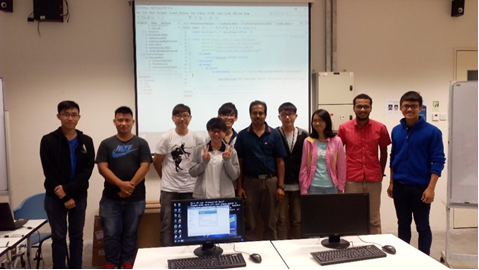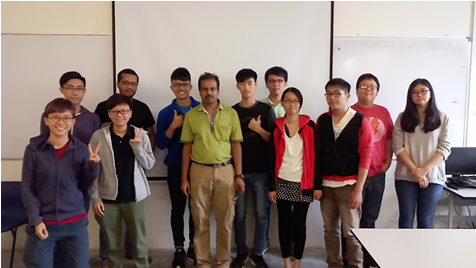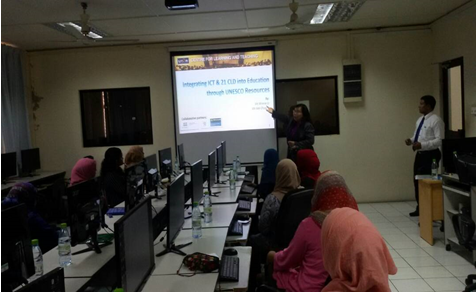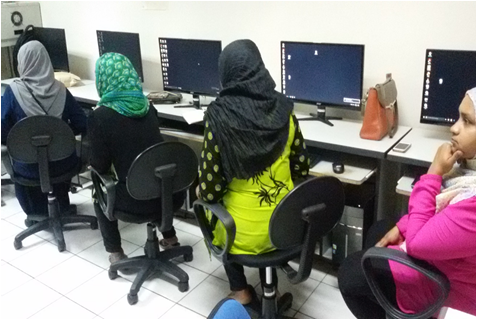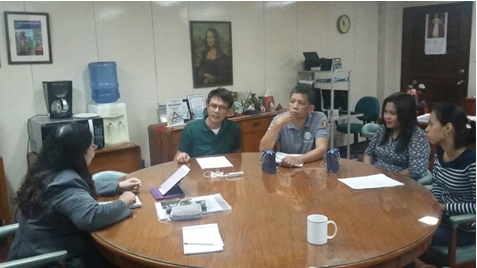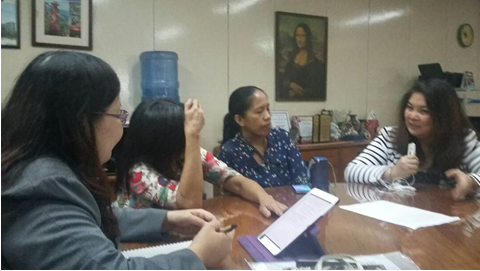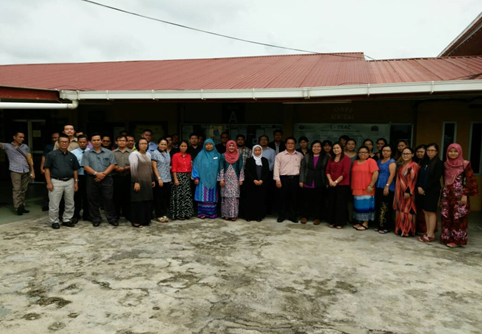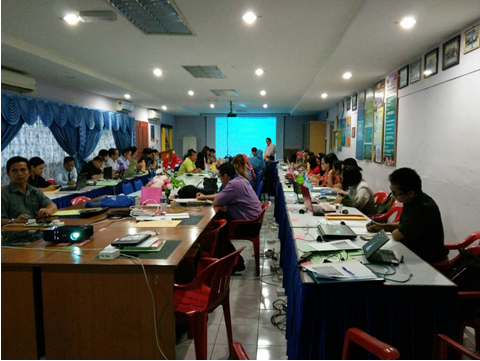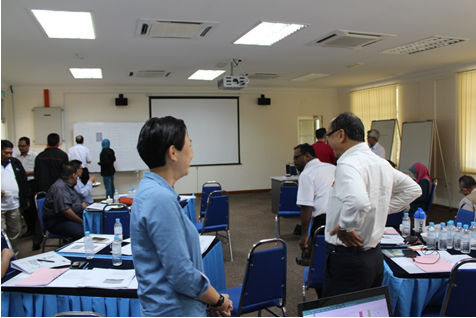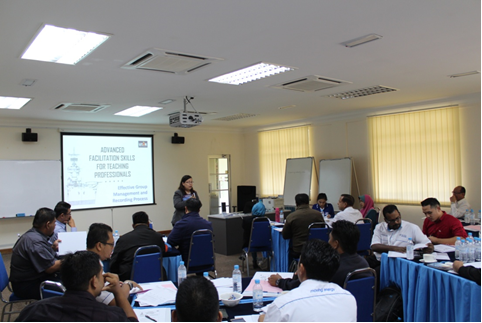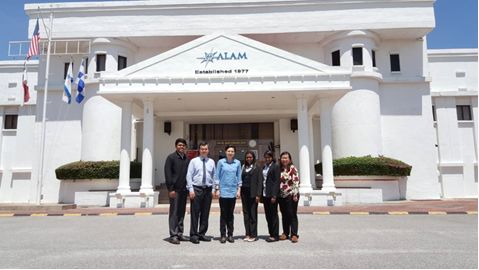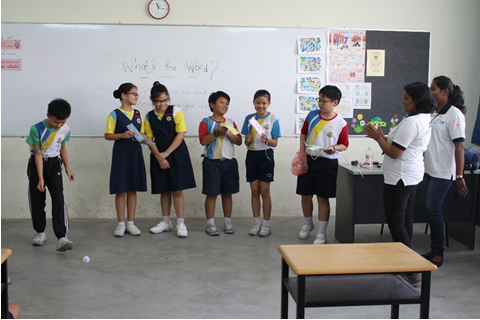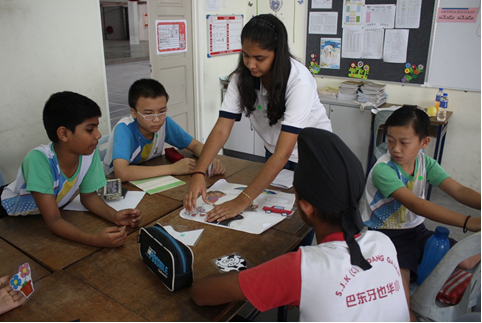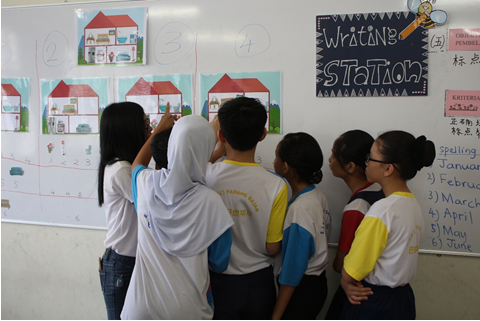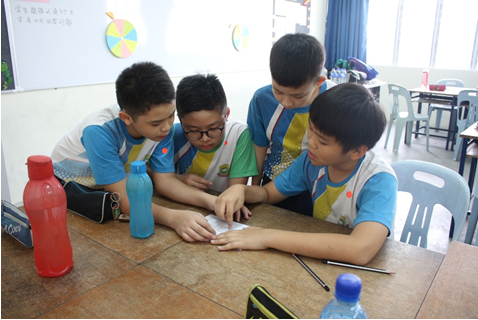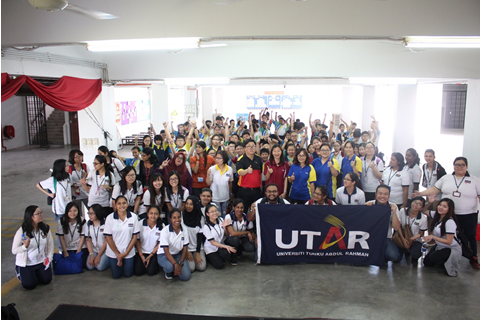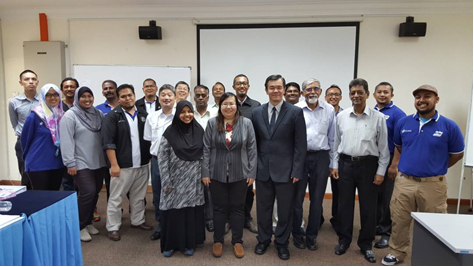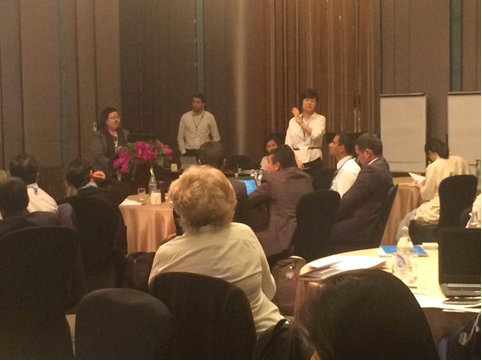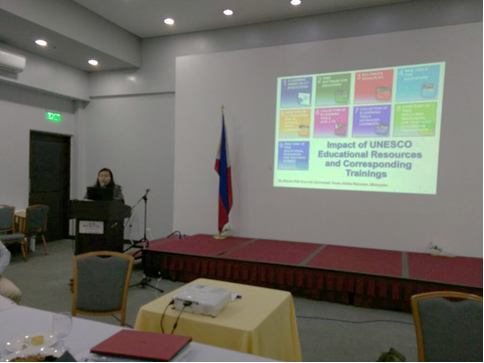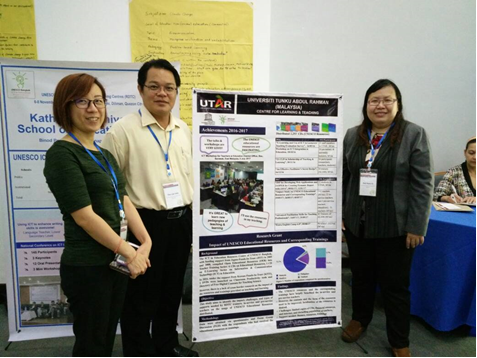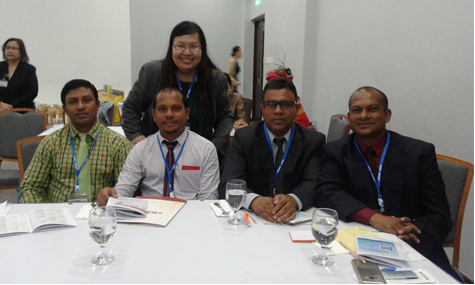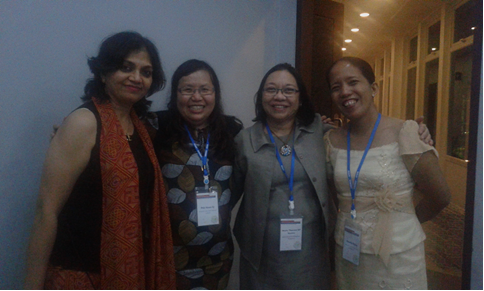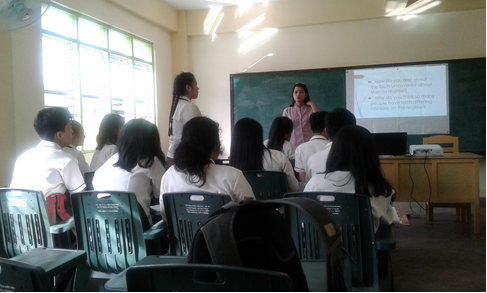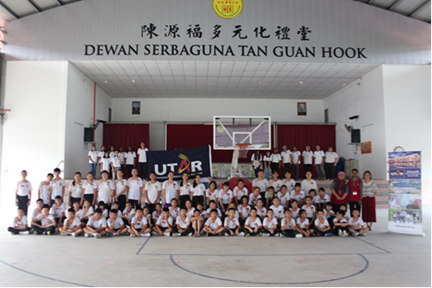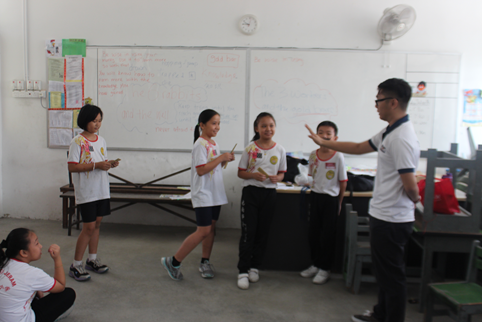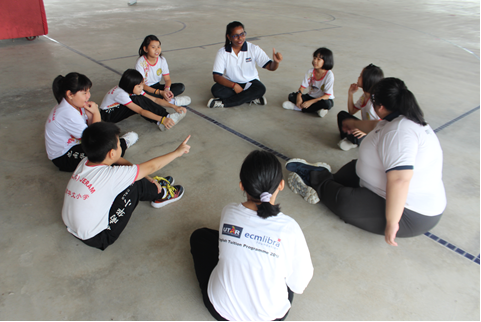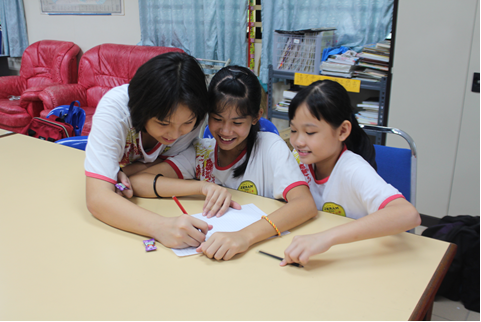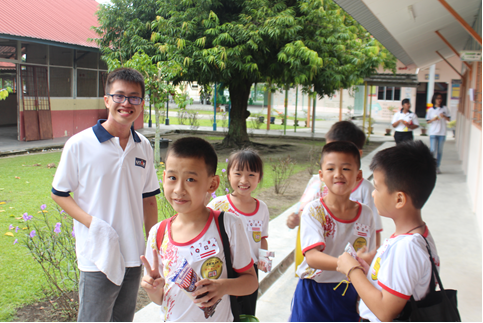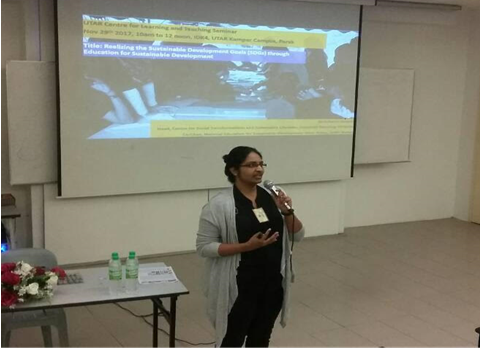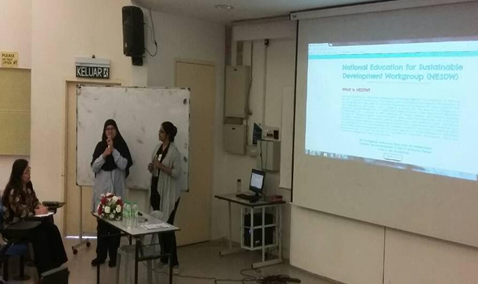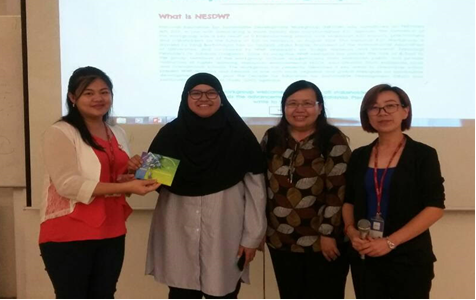Activities Report
| JSF for developing web applications and JASPER for creating dynamic report with JAVA |
|---|
Date: 9 Jan and 11 March 2017 The workshops were conducted by Mr Anbuselvan Sangodiah, a member from the Center of Learning and Teaching (CLT) on 9 Jan 2017 and 11 March 2017 respectively. The Faculty of Information and Communications Technology (FICT) assisted in providing support in issuing certificates of attendance and in providing room facility to conduct the workshops.
The students found the workshop beneficial as they are able to apply the technical skills acquired from the workshops in the final year projects and at work after completion of their studies. Based on the industry feedback and surveys, the content of the workshops is essential in IT industry.
|
| CLT Staff Development Talk on “Integrating UNESCO resources into Childhood Education” |
|---|
Date: 9 March 2017 The Staff Development Talk was conducted by Ms Winnie Pek-Hoon Er, the CLT Chairperson, on 9 March 2017, from 11am to 12pm, at the invitation of Ms Choo Poh Lin, the Director of the Institute of Childhood Education and Community Engagement (Institute CECE). The talk was conducted in the staff meeting room at Institute CECE at Setapak, Kula Lumpur, Malaysia. Ten (10) lecturers attended the talk, together with Ms Choo.  Institute CECE lecturers at the Staff Development Talk |
| ICT Workshop for Teachers and Focus Group Discussion |
|---|
| Event details
Venue: Maldives National University, Maldives
|
| Focus Group Discussion with Pre-service, In-service Teachers and the RDTC Trainers |
|---|
Date: 28 - 29 June 2017 In service teachers Pre- service teacher RDTC Trainers
|
| ICT Workshop for Teachers |
|---|
Date: 5 July 2017
|
| CLT Workshop on Advanced Facilitation Skills for Teaching Professionals |
|---|
Date: 14 and 15 July, 2017
A total of twenty-five (25) ALAM trainers participated in the 2-day workshop. Mr Lee Chee Heong conducted the first part of the workshop on ‘21st Century Learning and Teaching’ and the TPACK framework. A pre-test evaluation was conducted shortly before the workshop started. Each participant filled up a survey questionnaire. During the workshop, the participants were put to some activities designed to build up their understanding of 21st Century learning and teaching. Ms Winnie Er conducted the second part of the workshop on Effective Facilitation. On the second day (15 July), the participants were required to conduct Mock Facilitation sessions on individual basis. This was in order for them to practise what they learnt from the workshop the day before. At the end of the workshop, the participants were requested to fill up a post-test survey questionnaire.
|
| DLL-CLT camp on EXtra English 6.0 |
|---|
Conducted by: UTAR pre-service English teachers The EXtra English Camp 6.0, organized on 5 August 2017, was an inspiring and fruitful camp for 30 camp facilitators who were UTAR (Kampar) pre-service teachers pursuing the English Education and English Language degree programmes as well as 96 camp participants who were Standard 6 students from Bandar Seri Botani Chinese Primary School, Ipoh, Perak, Malaysia. Four (4) lecturers from the Department of Languages and Linguistics (DLL), who are also members of the UTAR Centre for Learning and Teaching (CLT), namely, Cik Siti Ummaizah Binti Meor Musa (Head of Department), Ms Zao-May Ooi, Ms A.Avene a/p Atputharaj and Ms Viji a/p Ramamuruthy, were involved in making this EXtra English Camp 6.0 a success. They were ably assisted by Ms Chooi-Wan Lee from the Department of Soft Skills Competency (Kampar Campus). This camp was fully-funded by the Department of Languages and Linguistics, Faculty of Arts and Social Science, UTAR Kampar and organised in collaboration with UTAR CLT.
|
| CLT Workshop on “Advanced Facilitation Skills for Teaching Professionals” |
|---|
Date: 29 and 30 September 2017 The workshop was conducted by a training and research team from the Center of Learning and Teaching (CLT) from 29 to 30 September 2017. The CLT team comprised two facilitators (Mr Chee-Heong Lee and Ms Winnie Pek-Hoon Er), two research supervisors (Dr Phaik-Kin Cheah and Dr Priscilla Moses) and four research assistants. The workshop was conducted in Melaka for the trainers of Akademi Laut Malaysia (ALAM) or the Malaysian Maritime Academy.
A total of twenty (20) ALAM trainers participated in the 2-day workshop. Mr Lee Chee Heong conducted the first part of the workshop on ‘21st Century Learning and Teaching’ and the TPACK Framework. A pre-test evaluation was conducted shortly before the workshop started. Each participant filled up a survey questionnaire. Ms Winnie Er conducted the second part of the workshop on Effective Facilitation. On the second day (30 September), the participants were required to conduct Mock Facilitation sessions on individual basis. This was in order for them to practise what they learnt from the workshop the day before. At the end of the workshop, the participants were requested to fill up a post-test survey questionnaire.
|
| CLT participation in the UNESCO-Korean Funds-in-Trust Project Meeting on “Enhancing National Capacity to Foster Digital Citizenship Education in Asia-Pacific” |
|---|
Date: 16-17 October 2017 The Centre for Learning and Teaching (CLT), being an official Resource Distribution and Training Centre (RDTC) of UNESCO Bangkok, was invited to participate in an event organised by UNESCO Bangkok, the Project Meeting on “Enhancing National Capacity to Foster Digital Citizenship Education in Asia-Pacific”, which was held from Oct 16-17, 2017, in Bangkok, Thailand.
To celebrate the successful implementation of the previous KFIT-ICT project and kick off the new phase of the Project, UNESCO Bangkok will convene the Project Meeting with key stakeholders. It will bring together the advisory committee, country project teams, international experts, and project evaluators to collectively evaluate the progress and achievements of the recently concluded KFIT Project. The discussions will logically progress to an examination of the initial design and workplan of the current KFIT project.
CLT Chairperson, Ms Winnie Er Pek Hoon, who was also the Head of the Research Working Group (RWG) of the RDTC network, together with Dr Elenita Que, who was the Head of the Training Working Group (TWG), were both invited to present an update on the research and training activities that had been conducted by the entire RDTC network from 2013 to 2017. Both were assisted by Dr Jong-Hwi Park, the Programme Specialist and Ms Maria Tan Melizza, the Programme Officer of the RDTC network.
 Dr Elenita Que, the Head of the TWG of the UNESCO RDTC network, presenting updates on the training activities of the RDTC network. |
| CLT participation in the UNESCO Regional Seminar of the Resource Distribution and Training Centres (RDTC) 2017 |
|---|
Date: Held on 6th to 8th November 2017
|
| DLL-CLT camp on EXtra English 7.0 |
|---|
Conducted by: UTAR pre-service English teachers The EXtra English Camp 7.0 was organized on 25 November 2017, a school holiday at the end of the school year for 2017. 65 school children from SRJK (C) Jeram participated in the Extra English Camp 7.0 which was choreographed by 19 UTAR pre-service teachers. The school children were from Standard 3 to Standard 6. The UTAR pre-service teachers planned and thought out various creative language game ideas to make the English Camp a colourful and educational experience for the school children.
|
| CLT Talk on “Education for Sustainable Development” |
|---|
Date: 29 November 2017 Present among the participants were also the organising committee, which comprised the Organising Chairperson Dr Wei Chooi Yi, Deputy Organising Chairperson Ms Lau Siew Yee and CLT Chairperson Ms Winnie Er Pek Hoon. They were assisted by the Faculty of Business and Finance (FBF) Deputy Dean for R&D and Postgraduate Programmes Dr Lau Lin Sea and lecturer Dr Tan Ai Lian, whom with them had enabled the talk to be successfully organised. Titled “Realizing Sustainable Development Goals through Education for Sustainable Development”, the talk aimed to provide participants with insights on the SDGs, and to provide various ideas that the university can do in order to carry out ESD initiatives, which saw participants benefiting from Dr Subarna’s introduction on sustainability. De Subarna, who is also the Head of Centre for Social Transformations and Sustainable Lifestyles in UTP, elucidated to participants that sustainability, according to the World Commission on Environment and Development, is “the ability to meet the needs of the present, without compromising the ability of future generations to meet their own needs”. On that point, she mentioned, “Sustainability competence is highly valued in the workforce. Students need to have the knowledge on how they contribute to the goals of sustainability. Take example when working in a company, students can help the company by finding ways to save costs or even help develop business strategies that could help make the environment greener.” Offering participants a clearer understanding, she explained that sustainable development is comprised of four key dimensions, namely social sustainability, economic sustainability, cultural sustainability and environmental sustainability, and that ESD revolves around these dimensions. According to the speaker, ESD is the umbrella term for education that aims to develop sustainability literate individuals, and ESD is the term commonly used by the United Nations (UN), which she then shared to participants the core principle of ESD. From her explanation, participants understood that ESD is based on the principles and values that underline sustainable development; it deals with the well-being of all four dimensions of sustainability; promotes lifelong learning; and it is locally relevant and culturally appropriate. ESD is also based on local needs, perceptions and conditions but acknowledges that fulfilling local needs often has international effects and consequences. The last principle of ESD shared to participants was that ESD builds civil capacity for community budget, decision-making, social tolerance, environmental stewardship, an adaptable workforce, and a good quality life. “UNESCO highlights to us that ESD is about engaging people in sustainable development issues, developing their capacities to give meaning to SD and to contribute to its development, as well as utilising the diversity represented by all people in generating innovative solutions to SD challenges and crises,” explained Dr Subarna. The 17 SDGs outlined by UN that were shared to participants are as below:
Aware that UTAR also encourages commitment to lifelong learning; Dr Subarna encouraged staff and students present to use that platform as an opportunity to engage in ESD, and to use ESD for researches that would greatly help nearby areas to build sustainable living. Beginning with simple actions, she gave example such as how to inform food operators in cafeteria to not sell seafood from the endangered list. The speaker also complimented the lush greenery of UTAR which she spoke of as being very suitable for developing sustainable environment project, which she also then shared that upon entering UTAR, seeing the large number of bicycles in the premise inspired her to advocate further the green transportation project in UTP. Under the organisation, WWF Malaysia, Dr Subarna is the Co-Chair of the National Education for Sustainable Development Work Group (NESDW) and the Deputy Chair of the National Eco-Campus Committee. Ms Nor Shidawati Abdul Rasid, World Wildlife Fund (WWF)’s Senior Manager of Formal Education, was later invited to share briefly about NESDW and encouraged UTAR to participate in this group with hope to spread the good efforts of the ESD initiatives. Tokens of appreciation were later presented to Dr Subarna and Ms Nor Shidawati by Dr Wei.
|

